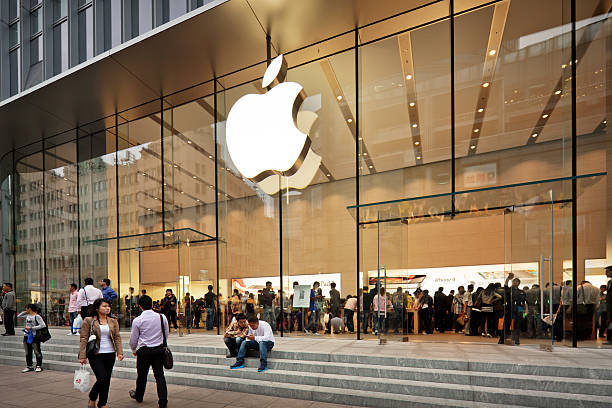Despite a recovery in the overall market, the market cap of Apple extended its post-earnings decline on Monday, sliding 1.7%.

Market cap of Apple crashed over the last week (Photo: Unsplash)
The market cap of Apple has already experienced its worst five-day period since November 2022 after losing more than $200 billion in market cap in less than a week.
In a recenly published article from FORTUNE, due to Apple’s scale, even a modest reduction in its share price appears to have a huge impact on the company’s market capitalization; nonetheless, the most recent decline of the market cap of Apple has been considerable by historical standards. Here’s why Apple’s stock price was so (relatively) scared by the market.
Falling Revenues. The turmoil started on August 3 when Apple revealed that its iPhone sales for the June quarter had fallen far short of Wall Street’s expectations, causing the company’s overall revenues to decline 1% year over year to $81.8 billion. Apple’s services segment revenues have increased recently, contributing billions to the company’s top line from the App Store, iCloud services, as well as Apple Music, Apple TV+, and Apple Pay, although sales of iPhones still make up around half of the overall income. Because of this reliance, a wave of analyst downgrades for Apple’s stock occurred last week as a result of the decline in iPhone sales and greatly impact the market cap of Apple.
Weak Guidance. Weaker-than-expected management guidance was another factor contributing to the recent decline in the market cap of Apple. Apple stated that it anticipates gross profit margins for the September quarter to range between 44% and 45%, with flat to slightly slower revenue growth year over year. Additionally, Apple CFO Luca Maestri stated that he anticipates revenue for the Mac and iPad to continue declining throughout the year along with the market cap of Apple, even though iPhone and services sector revenue may marginally accelerate.
READ ALSO: Top Worst Natural Disasters To Hit The U.S.
With all these crashes of market cap of Apple, is Apple still the winner?
In a published article from Yahoo Finance, investors were sufficiently alarmed by the most recent quarter crashes of the market cap of Apple, but Wall Street analysts’ reactions were mixed, with many renowned figures optimistic about the tech giant’s long-term prospects despite the recent setbacks.
Investors worry that declining iPhone sales are a sign of dwindling demand for Apple’s flagship product and its effect to the market cap of Apple, but optimistic experts point out that, on a constant currency basis, iPhone sector revenues actually increased 1.4% year over year in the most recent quarter.
READ ALSO: States With The Most Natural Disasters In America; Know More
























